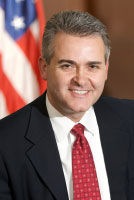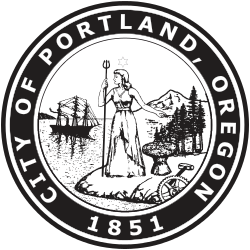March 4, 2020 •
Illinois State Legislators Working on Omnibus Bill

Illinois State Capitol Building
Illinois State District 28 Sen. Laura Murphy announced she is working with District 55 Rep. Martin Moylan on an omnibus bill for ethics reform to fight corruption. The bill will likely incorporate provisions from six existing bills, including recently passed […]
Illinois State District 28 Sen. Laura Murphy announced she is working with District 55 Rep. Martin Moylan on an omnibus bill for ethics reform to fight corruption.
The bill will likely incorporate provisions from six existing bills, including recently passed Senate Bill 1639 and House Joint Resolution 93.
Senate Bill 1639 increases disclosure requirements for registered lobbyists.
Meanwhile House Joint Resolution 93 establishes the Joint Commission on Ethics and Lobbying Reform.
The omnibus bill may also incorporate the following provisions:
-
- To require members of the General Assembly to be immediately removed from any leadership position if charged with a crime (Senate Bill 2488).
- To prohibit members of the General Assembly and members of his or her family from engaging in lobbying (Senate Bill 3020).
- To prohibit members of the General Assembly from engaging in lobbying for two years after leaving office (Senate Bill 3588).
- To create a uniform statement of economic interest for anyone required to file under the Illinois Governmental Ethics Act (Senate Bill 3318).
January 20, 2017 •
Maryland Ethics and Transparency Bills Proposed
Gov. Larry Hogan introduced several legislative acts to state lawmakers on January 19, 2017, including the Public Integrity Act, the Liquor Board Reform Act, and the Legislative Transparency Act. The bills are seen as a reaction to conspiracy and bribery […]
 Gov. Larry Hogan introduced several legislative acts to state lawmakers on January 19, 2017, including the Public Integrity Act, the Liquor Board Reform Act, and the Legislative Transparency Act. The bills are seen as a reaction to conspiracy and bribery scandals lawmakers were involved with in 2016.
Gov. Larry Hogan introduced several legislative acts to state lawmakers on January 19, 2017, including the Public Integrity Act, the Liquor Board Reform Act, and the Legislative Transparency Act. The bills are seen as a reaction to conspiracy and bribery scandals lawmakers were involved with in 2016.
If approved, the Public Integrity Act would keep lawmakers from using legislation to help their own businesses, and also prohibit legislators, appointees, and other staff from working as a lobbyist within a year of exiting their posts. The Liquor Board Reform Act would require state senators to make the committee nominations. And, under the Legislative Transparency Act, the House and Senate would have to stream their sessions live via video. Currently, the sessions are live, but just in audio format.
October 18, 2016 •
Five-Point Ethics Reform Plan Proposed by Presidential Candidate Trump
On October 17, U.S. presidential candidate Donald J. Trump revealed a five-point ethics reform plan he intends to implement if elected. The proposal calls for a five-year ban on federal lobbying by executive branch officials, members of Congress, and congressional […]
 On October 17, U.S. presidential candidate Donald J. Trump revealed a five-point ethics reform plan he intends to implement if elected. The proposal calls for a five-year ban on federal lobbying by executive branch officials, members of Congress, and congressional staff once they leave governmental service. It also calls for a lifetime ban on senior executive branch officials lobbying on behalf of foreign governments.
On October 17, U.S. presidential candidate Donald J. Trump revealed a five-point ethics reform plan he intends to implement if elected. The proposal calls for a five-year ban on federal lobbying by executive branch officials, members of Congress, and congressional staff once they leave governmental service. It also calls for a lifetime ban on senior executive branch officials lobbying on behalf of foreign governments.
The plan will expand the definition of lobbying to include former government officials “labeling themselves consultants and advisors when we all know they are lobbyists,” according to the candidate’s campaign press release. Included in the ethics package is a request for Congress to pass legislation prohibiting registered foreign lobbyists from raising money for U.S. elections.
In an end-of-session bipartisan push, the Legislature and governor have come to agreement on ethics reform measures. Their five-point plan includes the following: With more disclosure measures in place, super PACs are now able to give and receive unlimited contributions […]
 In an end-of-session bipartisan push, the Legislature and governor have come to agreement on ethics reform measures.
In an end-of-session bipartisan push, the Legislature and governor have come to agreement on ethics reform measures.
Their five-point plan includes the following:
- With more disclosure measures in place, super PACs are now able to give and receive unlimited contributions if they do not coordinate with a candidate;
- Public officers convicted of corruption may face revocation or reduction of their pensions;
- First-time political consultants will be required to disclose when they simultaneously represent political officeholders and private sector clients with government business;
- The reporting thresholds for organizations who lobby on their own behalf has been lowered from $50,000 to $15,000 while individual limits have been lowered from $5,000 to $2,500;
- Contributions over $2,500 to organizations engaged in lobbying must now also be reported to JCOPE; and
- 501(c)(4) organizations will now be required to disclose funding if they engage in political activity and receive any financial support and in-kind donations from 501(c)(3) organizations.
Other new features from the plan include imposition of fines up to $10,000 or the amount of promised contingency fees for anyone violating the state’s prohibition on contingency fee lobbying, a delineation excluding all communication with journalists from the definition of lobbying, and more due process rights for individuals being investigated by the Joint Commission of Public Ethics (JCOPE), including the right to a hearing.
June 20, 2016 •
New York Assembly Adjourns Sine Die
The Assembly adjourned early on Saturday, June 18, two days later than scheduled. In light of corruption convictions for former Speaker Sheldon Silver and Senate Majority Leader Dean Skelos, ethics reform was a primary focus of this term. The Legislature […]

The Assembly adjourned early on Saturday, June 18, two days later than scheduled.
In light of corruption convictions for former Speaker Sheldon Silver and Senate Majority Leader Dean Skelos, ethics reform was a primary focus of this term. The Legislature came to agreement on a five-point reform plan, including Assembly Bill 10739, which allows courts to reduce or revoke pensions for lawmakers convicted of felony-level corruption charges related to their responsibilities as public officials.
The bill is a constitutional amendment, so lawmakers will have to hold another vote at the beginning of the next regular session before voters will decide whether or not to accept the measure.
June 17, 2016 •
New York Legislature Returns to Review Ethics Reform Initiative
The Legislature was scheduled to adjourn Thursday, but will instead return Friday in an effort to reach final agreement on a few key bills. Assembly Bill 10739 has been sent to the Senate for review. If it is successful there, […]

The Legislature was scheduled to adjourn Thursday, but will instead return Friday in an effort to reach final agreement on a few key bills.
Assembly Bill 10739 has been sent to the Senate for review. If it is successful there, the bill would allow courts to revoke or reduce lawmakers’ pensions and retirement rights if they are convicted of felony-level corruption offenses.
Although a slew of other ethics reform bills was introduced during this session, no others are currently expected to pass.
June 1, 2016 •
New Ethics Reform Plan Introduced in New York Legislature
Sen. Robert Ortt has introduced a new plan to fight corruption in the Legislature. His “Shake up the Status Quo” plan aims to fight corruption by combining elements from several recent bills into a single bill with three planks: pension […]
 Sen. Robert Ortt has introduced a new plan to fight corruption in the Legislature.
Sen. Robert Ortt has introduced a new plan to fight corruption in the Legislature.
His “Shake up the Status Quo” plan aims to fight corruption by combining elements from several recent bills into a single bill with three planks: pension forfeiture for elected officials convicted of corruption charges; term limits; and additional ethics oversight.
Although Ortt is optimistic the bill can pass before the Legislature adjourns, only nine days are left in the legislative session.
May 16, 2016 •
Missouri Legislature Adjourns
The 98th General Assembly adjourned Friday, May 13. Although ethics reform was a top priority this session, lawmakers fell short of passing bills creating political contribution limits or prohibiting lobbyist gifts. The Legislature did approve a 6-month waiting period for […]
 The 98th General Assembly adjourned Friday, May 13.
The 98th General Assembly adjourned Friday, May 13.
Although ethics reform was a top priority this session, lawmakers fell short of passing bills creating political contribution limits or prohibiting lobbyist gifts. The Legislature did approve a 6-month waiting period for public officials seeking to become lobbyists as well as prohibit legislators from serving as paid political consultants.
Both houses stand adjourned until Wednesday, May 25. They will convene for a technical session and then adjourn sine die on May 30 pursuant to constitutional mandate.
May 5, 2016 •
New York Representative Seeks Ethics Reform
Rep. Steve McLaughlin is seeking bipartisan support for a package of ethics reform bills. The bills seek reform on multiple fronts by lowering the permissible amount individuals, unions, corporations, lobby groups, or businesses can donate to a PAC; increasing disclosure […]
 Rep. Steve McLaughlin is seeking bipartisan support for a package of ethics reform bills. The bills seek reform on multiple fronts by lowering the permissible amount individuals, unions, corporations, lobby groups, or businesses can donate to a PAC; increasing disclosure requirements for pay-to-play lobbying; placing eight-year term limits on legislative leaders; and stripping pensions from those convicted of public corruption offenses.
Rep. Steve McLaughlin is seeking bipartisan support for a package of ethics reform bills. The bills seek reform on multiple fronts by lowering the permissible amount individuals, unions, corporations, lobby groups, or businesses can donate to a PAC; increasing disclosure requirements for pay-to-play lobbying; placing eight-year term limits on legislative leaders; and stripping pensions from those convicted of public corruption offenses.
The proposed bills come in response to former Assembly Speaker Sheldon Silver’s recent 12-year prison sentence for conviction on multiple corruption charges.
Photo of Rep. Steve McLaughlin courtesy of the New York State Assembly website.
April 21, 2016 •
Missouri General Assembly Sends Ethics Legislation to Governor
Missouri lawmakers sent legislation to the governor on Wednesday as part of the state’s attempt at ethics reform. One bill would create a revolving door provision, prohibiting legislators and statewide elected officials from lobbying until six months after their respective […]
 Missouri lawmakers sent legislation to the governor on Wednesday as part of the state’s attempt at ethics reform. One bill would create a revolving door provision, prohibiting legislators and statewide elected officials from lobbying until six months after their respective terms end. Because he has expressed a need for ethics reform since 2009, Gov. Nixon is likely to sign the bill.
Missouri lawmakers sent legislation to the governor on Wednesday as part of the state’s attempt at ethics reform. One bill would create a revolving door provision, prohibiting legislators and statewide elected officials from lobbying until six months after their respective terms end. Because he has expressed a need for ethics reform since 2009, Gov. Nixon is likely to sign the bill.
Another piece of legislation still under consideration involves a potential ban on lobbyist gifts to public officials. The Senate recently voted on an amendment to remove the ban from the bill and, instead, to replace it with a $40 per-gift limit for each lawmaker.
April 15, 2016 •
Missouri Governor Signs Ethics Bill
Missouri Gov. Jay Nixon signed House Bill 1983 yesterday, prohibiting statewide elected officials and legislators from receiving compensation as paid political consultants on behalf of other officials or members of the General Assembly. The bill is the first ethics-related legislation […]
 Missouri Gov. Jay Nixon signed House Bill 1983 yesterday, prohibiting statewide elected officials and legislators from receiving compensation as paid political consultants on behalf of other officials or members of the General Assembly. The bill is the first ethics-related legislation to cross the governor’s desk since multiple lawmakers resigned last year amid embarrassing sex scandals.
Missouri Gov. Jay Nixon signed House Bill 1983 yesterday, prohibiting statewide elected officials and legislators from receiving compensation as paid political consultants on behalf of other officials or members of the General Assembly. The bill is the first ethics-related legislation to cross the governor’s desk since multiple lawmakers resigned last year amid embarrassing sex scandals.
While the law does not address the conduct issues of the past, Nixon believes it is a step in the right direction and will strengthen the ethics laws he believes are the weakest in the nation. Missouri is one of few states with no campaign contribution limits, no limits on lobbyist gifts to lawmakers, and no revolving door provisions preventing legislators from immediately lobbying after leaving office.
April 14, 2016 •
Portland, Oregon Reviews Proposed Ethics Reforms
The City Council heard two proposed ethics reforms at yesterday’s council meeting. An ordinance introduced to require political consultants working with Portland politicians to meet certain reporting and registration requirements was passed by the council and will go to a […]
 The City Council heard two proposed ethics reforms at yesterday’s council meeting. An ordinance introduced to require political consultants working with Portland politicians to meet certain reporting and registration requirements was passed by the council and will go to a second reading at next week’s meeting following some minor amendments.
The City Council heard two proposed ethics reforms at yesterday’s council meeting. An ordinance introduced to require political consultants working with Portland politicians to meet certain reporting and registration requirements was passed by the council and will go to a second reading at next week’s meeting following some minor amendments.
The other ordinance introduced to broaden revolving door prohibitions and close a loophole in registration requirements was not viewed as favorably by the council. The council will reconsider this ordinance at the May 11, 2016 council meeting.
Photo of Portland by Eric Baetscher in Wikimedia Commons.
April 13, 2016 •
Indianapolis Council Approves Ethics Reform
The City-County Council passed a proposal earlier this week to amend Indianapolis-Marion County ethics and lobbying laws. The proposal creates employment restrictions and post-employment restrictions for city-county employees and certain officials. A current official, the deputy mayor, and any individual […]

The City-County Council passed a proposal earlier this week to amend Indianapolis-Marion County ethics and lobbying laws. The proposal creates employment restrictions and post-employment restrictions for city-county employees and certain officials.
A current official, the deputy mayor, and any individual with appointment authority may not be employed by or work as a subcontractor for any person with a contract or arrangement with an agency. Moreover, former employees must wait one year before being employed as a lobbyist following termination of employment with the city or county.
All government contracts will require vendors to certify adherence to the employment restrictions. The proposal also adds things of value to the list of reportable lobbyist gifts and requires lobbyists to list the name of the official, appointee, or employee receiving a reportable gift. Lastly, the proposal amends penalties for lobbyists and their firms for registration, reporting, and ethics violations.
April 6, 2016 •
Portland, Oregon to Consider Ethics Reforms
The Portland City Council will consider adopting new ethics reform measures to broaden the revolving door prohibition to two years, and increase the penalties associated with repeated ethics violations. The proposal would also close a loophole in registration requirements, requiring […]
 The Portland City Council will consider adopting new ethics reform measures to broaden the revolving door prohibition to two years, and increase the penalties associated with repeated ethics violations. The proposal would also close a loophole in registration requirements, requiring lobbying entities that spend more than $1,000 a quarter on lobbying activities to register.
The Portland City Council will consider adopting new ethics reform measures to broaden the revolving door prohibition to two years, and increase the penalties associated with repeated ethics violations. The proposal would also close a loophole in registration requirements, requiring lobbying entities that spend more than $1,000 a quarter on lobbying activities to register.
A separate ordinance requiring political consultants working with Portland politicians to meet certain reporting and registration requirements will also be considered.
The new ordinances will be introduced at the council meeting on April 13, 2016.
State and Federal Communications, Inc. provides research and consulting services for government relations professionals on lobbying laws, procurement lobbying laws, political contribution laws in the United States and Canada. Learn more by visiting stateandfed.com.

